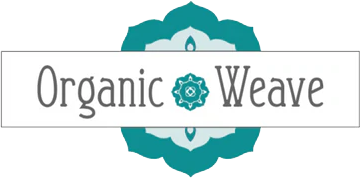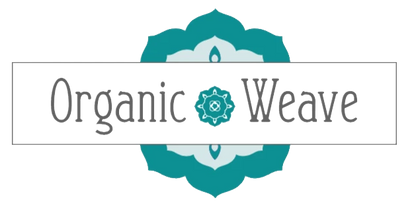WE SHIP WORLDWIDE
WE SHIP WORLDWIDE
Why Buy Organic Cotton?
June 14, 2024 5 min read
We are thrilled to present a guest post written by Ethical Clothing on the benefits of organic cotton & why to choose it

Imagine this: your everyday essentials – from comfortable t-shirts to plush towels and luxurious rugs – actively contribute to a healthier planet, promote ethical practices, and even benefit your own well-being.
That's the power of organic cotton. It's more than just a buzzword; it's a game-changer for sustainability.
While conventional cotton farming leaves a significant environmental footprint, organic cotton offers a refreshing alternative – both literally and figuratively.
So, how does organic cotton make a difference? Let's explore its positive impact:
The Difference Organic Makes...

Water Conservation
Conventional cotton is notorious for its high water consumption, requiring 2,700 liters of water to produce just one t-shirt! Organic cotton cultivation practices significantly reduce water usage, often by up to 70%. In a world facing water scarcity, this translates to a dramatic reduction in water use and conservation of this precious resource. Every organic cotton product you choose contributes to a more sustainable future.
Promotes Healthy Soil
Organic cotton farming eliminates the use of harmful synthetic fertilizers and pesticides. This allows the soil to retain moisture more effectively, reduces erosion, and promotes the growth of beneficial microbes that contribute to healthy soil fertility. Healthy soil benefits everyone, from supporting robust plant growth for food production to creating a thriving ecosystem.
Combats Climate Change
Did you know conventional cotton production is a major contributor to greenhouse gas emissions? Organic cotton cultivation utilizes natural methods that reduce these emissions, helping us combat climate change and create a cleaner future for all.
Healthy Ecosystem
Organic farms become sanctuaries for beneficial insects like ladybugs and lacewings. Without the threat of harsh chemicals, these natural predators can flourish, keeping pest populations in check and promoting a healthy balance in the ecosystem. This fosters a more resilient and biodiverse environment – a win for both nature and agriculture.
Fair Trade and Ethical Labor
Organic cotton farming often aligns with fair trade principles. This translates to better working conditions and fair wages for farmers, fostering a more just and equitable global supply chain. By choosing organic cotton, you're contributing to a more ethical way of life for farming communities around the world.
Gentle on the Skin
Free from harmful chemicals and residues often found in conventionally produced fabrics, organic cotton clothing is ideal for those with sensitive skin or allergies. It minimizes skin irritation and allergic reactions, allowing you to feel comfortable and confident in your organic cotton essentials.
Luxurious Comfort
The natural breathability of organic cotton fibers helps regulate temperature, keeping your feet cool in the summer and warm in the winter. If you’re a fan of using cotton rugs, the hypoallergenic properties of organic cotton make them ideal for bare feet, especially for those with sensitivities. So, just Imagine sinking your toes into a plush organic cotton rug after a long day – pure comfort and a touch of luxury for your home.
Aesthetic Appeal
Organic cotton products come in a wide variety of styles and colors, allowing you to express your personality and elevate the aesthetic of any room. Incorporating organic cotton in your everyday essentials allows you to embrace a sustainable style throughout your home.
Durability or Lasting Value
Due to the strong and resilient nature of organic cotton fibers, organic cotton products are built to last. Organic cotton rugs can withstand everyday wear and tear, towels maintain their softness wash after wash, and clothing keeps its shape for years to come. This translates to wise investments for your home and wardrobe, reducing waste and promoting sustainability in the long run.
The Organic Cotton Plus Factor
Imagine stepping out of the shower and wrapping yourself in a luxuriously soft, organic cotton towel, knowing it didn't come at the expense of the environment or ethical practices. Or picture yourself sinking your bare feet into a beautiful, hand-woven organic cotton rug, confident that it's gentle on your skin and kind to the planet:

Organic Weave cotton rugs are certified organic by Global Organic Textile Standard (GOTS).
The switch to organic cotton is a simple yet powerful way to create a positive and healthier impact. Look for ethical brands with organic cotton products that can improve your everyday life while making a positive impact on the world.
TO LEARN MORE ABOUT ORGANIC COTTON:
Head to Ethical Clothing's Blog:
Organic Cotton: Traditional Farming For A Sustainable Future
ABOUT ETHICAL CLOTHING:
Ethical Clothing was founded with a simple goal, to make ethical decisions easier when it comes to buying clothes and accessories.
Despite being clued up on ethical shopping, we didn’t know a single place to find a large range of ethical clothing from different brands. Because of course, in order to make ethical purchase decisions we need to find authentic ethical options first, and this is where it gets complicated.
The problem is that the fashion industry has become expert at green washing, pulling the wool over our eyes, leading us to believe that all is fair, humane, and environmentally conscious. Many brands know exactly what to say, and how to ‘dress up’ their products with sustainable messaging, whilst falling so far short on the fundamentals, such as supply chain transparency, fabric choice, build quality, human rights, and recycling.
Behind the haze of branding and carefully curated narratives, there are products, and what really matters is how these products are sourced, manufactured, and disposed of at the end of life. This is the part we almost never see, and there’s a reason for it…
Over the last 20 years, the explosion of fast fashion has led to a doubling of clothing production, and a shift in culture. We now consume and dispose of clothing faster than ever before. We want what we see, and we want it for a price that’s simply unsustainable.
But somewhere, someone or something, always pays a price for our unrealistic demands. This aggressive consumerism has generated an industry that’s already stretching natural resources and people to their limits.
The fashion industry is broken.
It’s now moving at such a pace that it creates 10% of global CO2 emissions, a figure that’s expected to reach 26% by 2050. Textile dying alone already accounts for 20% of global waste water. And cotton production uses 16% of the world’s pesticides. We could go on, but needless to say, we are sleepwalking into an environmental disaster.
Unfortunately, the overwhelming majority of the industry has put profit ahead of sustainability time and time again. As consumers we have to lead the way, and our currency really does count. So, through conscientious purchasing decisions we can help grow the small section of the industry that puts ethics at the top of their agenda.
Ethical brands do exist, and there are perhaps even more than you think. By supporting these brands, and neglecting those that are blatantly unsustainable, together we can make the incremental changes needed to drive a new, cleaner, conscientious fashion industry, that’s fit for the future.
Knowing our own limitations we set out to do our bit to help you, the consumer, to find ethical clothing more easily. Our first incarnation of the platform attempts to conglomerate products from the top ethical retailers in Europe, so you can discover them all from one site.
With time, we’ll develop our algorithms to ensure that every product we are listing is ranked and graded, to help customers understand exactly how ethical/sustainable a product is.
Finally, before you buy anything we encourage you to stop and ask yourself - do i really need this? As the first step in this battle is to stem our personal level of consumption. Then with forethought and consideration, we hope to help you make your necessary purchases as ethical as possible.
SOURCE: Ethical Clothing
Leave a comment
Comments will be approved before showing up.
Subscribe
Sign up to get the latest on sales, new releases and more …

